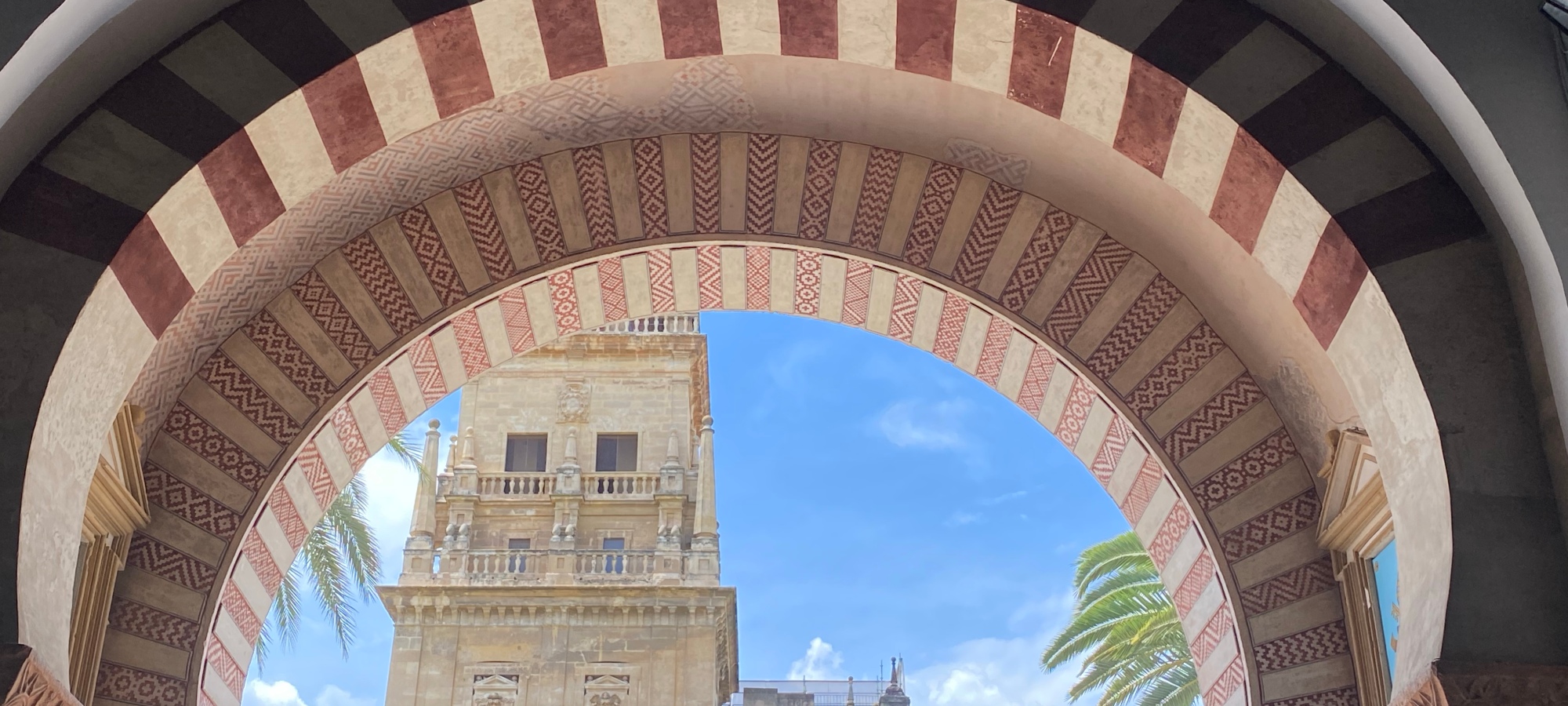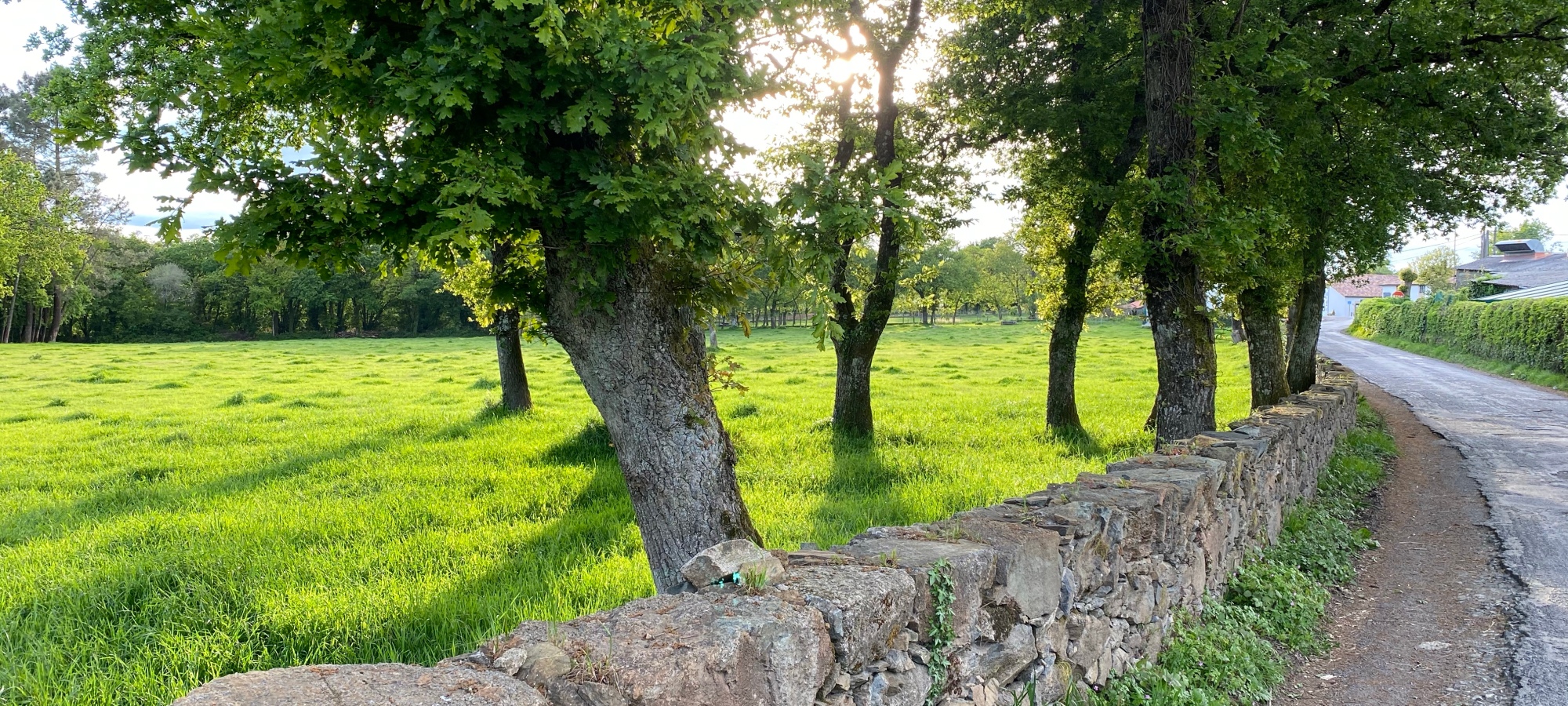A friend recently told me they thought we were crazy moving to such a rural place. Won’t they get bored? they said, when discussing it with other friends. But in typical Jeff and Kelli fashion we have blown that notion out of the water. The doubters doubt no more. And I can’t, for the life of me, believe they ever did. Long ago I had another friend tell me I was the only person he knew who could find a way to stay busy, while naked in the middle of a corn field. As disturbing as the images from that visual might be, he wasn’t wrong. I have things to do. And so does Jeff. But sometimes, the unexpected begins before we’ve even had our first coffee.
Take today, for example. We were in Melide running errands. I had decided that bringing Fergus was a better idea than putting him in his dog run. It’s a sunny day here. But a very cold morning as we strolled through town. Jeff made a haircut appointment with Alfonso at the barbershop on Rua San Pedro for tomorrow morning. Then, we walked down to the Hyper Melide and picked up a few necessities. On the way we saw two cars with their flashers on and the drivers on the hood writing on papers in the middle of the traffic circle.
‘Accident or just catching up?’ asked Jeff, sarcastically. We have seen this before and it was 50/50 that they were just having a good chin wag in the middle of traffic. This should have been an indication for us of what was to come.
Fergus stopped, repeatedly, sniffing much of the lower half of the town, so we were delayed heading back the ten blocks to our car parked behind the church and the ayuntamiento (town hall). My suggestion that we stop for a coffee was met with resistance from Jeff. He shivered and wanted to get home to get warm.
Jeff was twenty yards ahead of me, practically race walking to the car as I went through Fergus’ training on the lead, and he was already to the parking lot when Fergus and I came around from side of the building that was blocking our view. Jeff stood at the back of the car with the hatch open. I knew when Fergus saw it he would take off running and jump in. He loves to go for a ride. Just then, a car was pulling out from beside us and made a very weird shallow three point turn. He wouldn’t make it clearing our car to leave the lot. I held on to Fergus and stood back. Jeff did too. The guy stopped, and backed up, again. Then, instead of turning his wheel hard he stepped on the gas as his head went down, as if he were asleep. Jeff shouted but the guy didn’t ‘wake up’ until his car hit ours. Yes, we were rear ended while parked in a parking lot, and we watched it happen!
The guy’s car was still running and his head was bobbing. Jeff shouted at him to shut off the car, which he did not do. But he opened the door and stumbled out. He could not stand up. I turned Fergus around and started running. A woman was walking towards me on the street and I asked her where the police station was. She pointed and we took off in that direction. The station door was blocked by non-police men smoking. I swear, this seems to be the default setting in the winter everywhere you go. I had to weave my way through them, and the smoke, with the dog to the desk, where I amazed myself, explaining in español that a drunk driver hit our car. Well, I had to mime the drunk bit. It’s not a word I commonly use. They asked where it was and I pointed and told them. Then, I walked out with the police following me and Fergus on foot.
We arrived back at the parking lot. Jeff was trying to get the guy to give him his information and insurance. And Jeff was pissed off! I asked Jeff what was going on but he just shook his head. The guy couldn’t stand and couldn’t really speak. Neither of us have patience for a drunk driver. And a drunk driver at 10am? Even less.
Soon we were like an episode of Cops!!. I could almost hear the theme song. Bad boys, Bad boys, what you gonna do? What you gonna do when they come for you…? We stood off to the side as more cops arrived in what we call squad cars in America. Here? They are just little Fords or KIAs. We had the Policía Local and the Guardia Civil as back up, and were there long enough that people we know with business in town began to arrive at the aparcamiento (parking lot), including our contractor, Diego, who we needed to meet with anyway – so we did it standing up in the gravel lot. Two birds with one stone.
The young local police officers were very nice and kind. They understood the situation and interviewed the other driver. And then it turned into something altogether different.
Jeff had noticed the car when we parked. The man had been sitting in it the entire time. And, the driver, it turns out, was not drunk. As he explained to the police, he had sat in his car and taken a bottle of pills in an attempted suicide. This accident with us, and my running to the police station to get help, had actually saved his life. And, likely the lives of anyone he might have hit if he had been able to leave the parking lot. Pedestrians are everywhere. He would have killed people at a zebra crossing before he died from the pills behind the wheel. An ambulance was called to take him to the hospital to pump his stomach.
If we were in the US the driver would have been handcuffed immediately. A firearm might easily have been involved. But here, the police just spoke to the man. Let him sit down. They showed compassion for him and his state of mind.
This was a refresher for me on what to do in an accident in Spain. I’ve only had one other here, when I hit that pack of javalies on the A6 outside Lugo on a rainy October night during Covid. Today, the police helped us with everything and our insurance agent in town is already filing the claim with the guy’s insurance company. So the back end of our car will be repaired. It will cost us nothing. In the end, it’s just stuff. Cars are just things. We are not hurt. When we were driving home from the insurance agent I thought about the man. So desperate, so despondent, that he would take a bottle of pills alone in his car behind the church in Melide. What must have happened to precipitate that? The loss of a loved one? I looked at the claim form with his name on it. It listed his birth date. He looked 70 but he is three years younger than me. A hard life. We all have struggles in our lives. Things that take us down to the very bottom, where we are drowning and can’t see a way out. The possibility of a brighter future where this will pass is lost to us. I know that place. So while this car accident is inconvenient for us, this man needs help and compassion. He needs our understanding and our prayers. I send up a prayer for Juan, the man from the parking lot. That he gets the help and support he needs. Then, I think, that perhaps this accident was no accident, at all.




